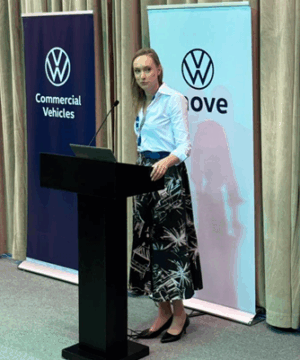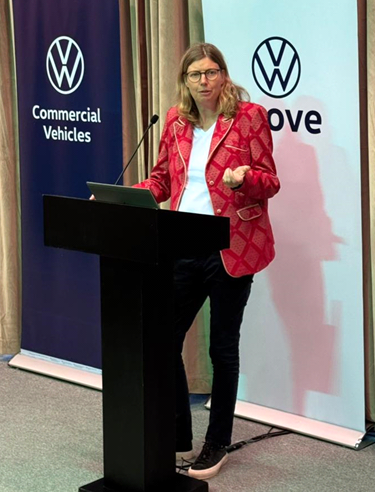By Ernest Bako WUBONTO, Kigali-Rwanda
The African Association of Automobile Manufacturers (AAAM) has urged African leaders to expedite the adoption of standardised automotive policies to drive industry growth and regional cooperation.
With about 41 of the 54 African countries lacking fuel quality standards and other critical automotive regulations, the association warns that manufacturers face barriers in expanding production and market access across the continent.
Speaking at a media briefing on industry developments in Kigali-Rwanda, Chief Executive Officer (CEO)-AAAM, Victoria Backhaus-Jerling, stressed that without proper regulations aligned with global standards, Africa risks losing significant revenue needed for economic development.
“Harmonising standards for vehicles, spare-parts and fuel quality is essential,” she said. “To build regional value chains and transform raw materials into high-value automotive products, we need strong policies that support this growth.”
She further emphasised that political commitment, regardless of change in government, is crucial for sustainable auto industry growth – citing how a change in government has halted the auto policy formulation process in some countries.

Touching on the relevance of this policy, Backhaus-Jerling said: “Not every nation needs to assemble vehicles, but with clear standards countries can leverage their strengths and collaborate for efficient, mutually beneficial value chains”.
Volkswagen Group Africa (VWGA)-South Africa, Chairperson and Managing Director Martina Biene, echoing similar sentiments stressed how policy gaps hinder some market entries.
She cited Nigeria’s poor fuel quality, stemming from a lack of regulation, as a key obstacle for the company’s operations in that market in the past and a reason for the delay in returning despite several calls.
The automotive sector is a major gross domestic product (GDP) contributor in many developed economies and ranks as second-largest contributor to South Africa’s GDP behind the mining sector. However, due to policy gaps, most African countries are missing out on these economic benefits.
Mrs. Biene also called on African governments to prioritise the automotive sector and implement measures to stimulate industry expansion, noting its vast revenue potential.
The AAAM’s appeal underscores an urgent need for policy reforms to unlock Africa’s automotive potential and foster continental economic integration.
Auto Policy as Key Driver of Development
Automobile policies hold the capacity to play a crucial role in shaping the automotive industry’s growth in Africa.
Backhaus-Jerling highlighted that it attracts investments as a clear and favourable policy which can attract foreign direct investment (FDI) into the automotive sector, enabling establishment of factories and supply chains.
These FIDs, she added, then encourage local production as policies that promote domestic manufacturing can help reduce reliance on imported vehicles, create jobs and stimulate economic growth.
The AAAM strongly advocates regional integration underpinned by policies which encourage regional trade and collaboration to create larger markets that make economic sense for manufacturers to produce.
With the African Continental Free Trade Area (AfCFTA) in motion to eliminate barriers – which can help create economies of scale and integrate African markets into global automotive value chains – fast-tracking the implementation of Auto policies would ensure Africa is not left out.










